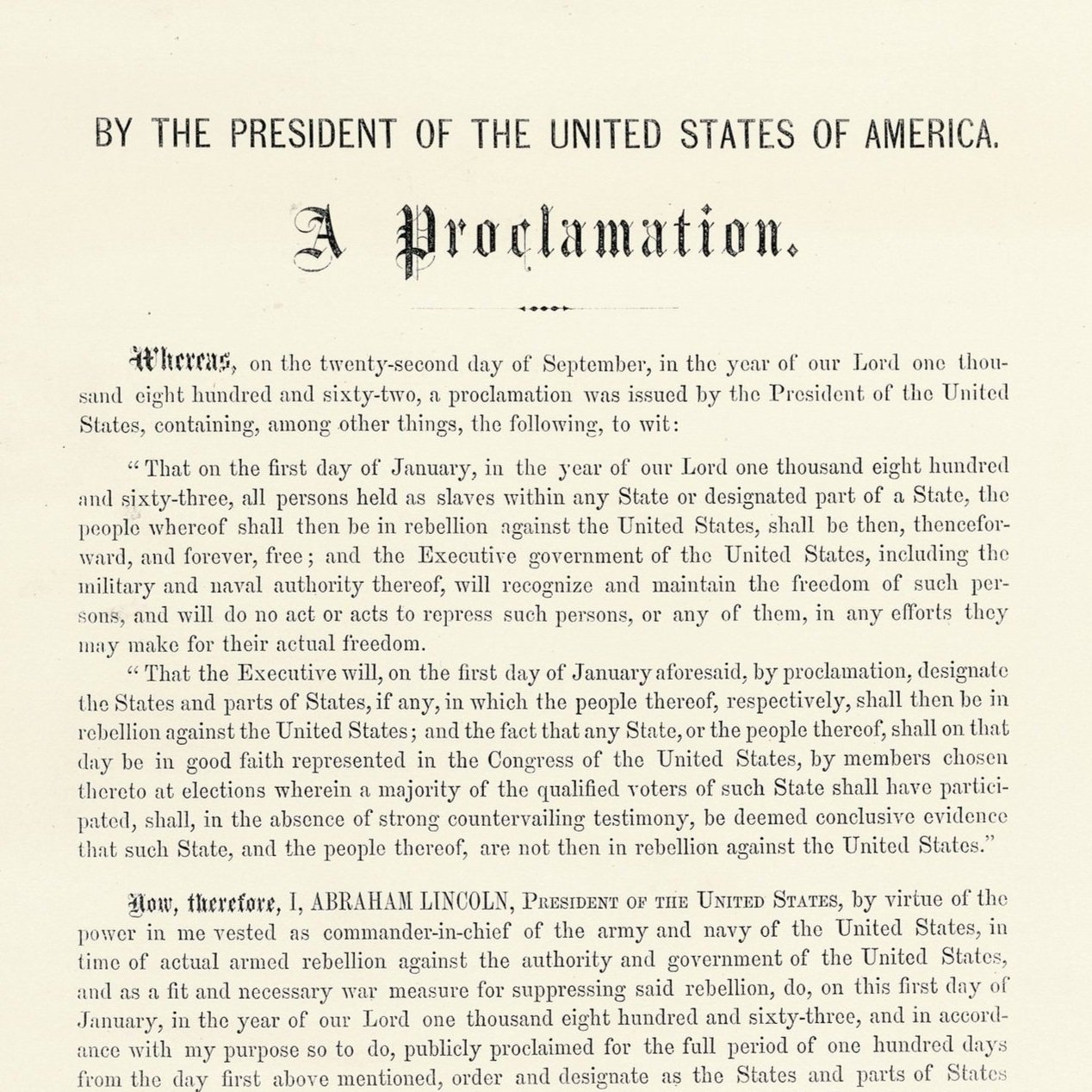The Emancipation Proclamation
“All persons held as slaves within any state or designated part of a state, the people whereof shall be in rebellion against the United States, shall be then, thenceforward, and forever free…”
A key facet of Lincoln’s genius was his ability to inspire as broadly as possible but act as narrowly as necessary – threading needle after needle before anyone could even begin to see a tapestry. By excluding from the Proclamation states (under regular Constitutional order) and areas under Union military control, he expected the doctrine of military necessity to help his Proclamation survive expected Supreme Court challenges.
The most revolutionary part of the document is often overlooked: “And I hereby enjoin upon the people so declared to be free to abstain from all violence, unless in necessary self-defence; and I recommend to them that, in all cases when allowed, they labor faithfully for reasonable wages….”
This is not Lincoln patronizingly telling freed slaves to behave themselves, but an announcement that black men and women, until then treated solely as chattel, could now legally act in self-defense. This is Lincoln’s answer to the most notorious part of the 1857 Supreme Court decision in Dred Scott v. Sandford, when Chief Justice Roger Taney’s majority opinion went so far as to declare that blacks, “regarded as beings of an inferior order,” had “no rights which the white man was bound to respect.”
Further, Lincoln knew that freed persons didn’t need to be told to “get a job.” He often spoke of the great injustice of depriving men and woman of the fruit of their own labor. These words were aimed not at the freed slaves, but at those who had the power to hire them. Lincoln also declared that “such persons of suitable condition will be received into the armed service of the United States to garrison forts, positions, stations, and other places, and to man vessels of all sorts in said service.”
Ultimately, 200,000 African-Americans fought for the Union, by war’s end making up ten percent of the Union army and a higher percent of the navy. We see this language, painting a picture of “far away from here,” as an attempt to make the necessity of recruiting and arming black soldiers sound as unthreatening as possible.
Demonstrating the evolution of his thinking, the final Proclamation eliminated his Preliminary Proclamation’s references to colonization and compensation to slave owners for voluntary emancipation. Perhaps no document other than the Declaration of Independence so clearly articulated the vision of a new future for the nation.
★ ABRAHAM LINCOLN. Document Signed, [June, 1864], co-signed by William Seward, Secretary of State, and John Nicolay, Private Secretary to the President. “Authorized Edition,” created and sold to benefit the Sanitary Commission’s work aiding soldiers and improving conditions in Union and P.O.W. army camps. #22028


